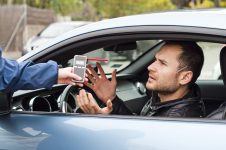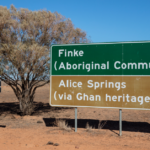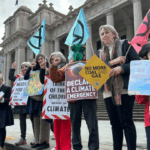WA Police ‘Putting Numbers Before Results on Breath Tests’

Police forces across the country are often accused of revenue raising by trying to nab as many motorists as possible for driving offences, and a new survey from the WA Police Union shows that even police officers would agree.
The results are in
In the survey, 90% of the officers who participated said in relation to roadside breath testing that they feel like the police force is more concerned about the number of drivers tested, than what the actual results are.
The survey was part of a submission from the union to a parliamentary inquiry into the methods used by the police service to assess performance. Overall, a total of 663 police officers were surveyed by the union, most of who were working in the metropolitan area.
Other results from the survey show that 56% of those surveyed don’t believe that major drug and alcohol testing activities are being conducted in the right place at the right time, and 65% said their station did not have adequate resources.
A numbers game
Roadside breath testing often takes place during the week, in the middle of the day, a time when many police officers state it is unlikely that people will be drinking and driving. This further reinforces the view that roadside breath testing is more about the number of people tested, as this is the time of day when roads in metropolitan areas are often the busiest.
The danger of this approach is that resources are being misdirected into pointless roadside breath testing, while avoiding tackling real issues and doing anything that is likely to make roads safer for motorists.
According to Assistant Commissioner for Traffic and Emergency Response Nick Anticich, the positioning of the booze buses in busy metropolitan areas during the day is deliberate, and a strategy aimed at showing members of the public that they are likely to get caught if they do drink and drive. It would appear from this that the police service is more interested in being seen to be doing the job, than actually doing the job, a point emphasised by opposition police spokeswoman Michelle Roberts.
In contrast to the views set out by Assistant Commissioner Anticich, 72% of officers surveyed believe that targeted drug and alcohol testing is far more effective than the random approach, and 81% said that police presence on the road was the single most effective way of modifying road user behaviour.
Unfortunately it would seem that police resources are being largely spent on ineffective and pointless breath testing, leaving stations with insufficient resources to conduct their traffic duties and actually do their jobs.
Little doubt that revenue raising happens
It is not only WA where the police force has been accused of revenue raising. There has been a lot of focus on traffic measures in NSW as well, including increased numbers of red light and speed cameras, as well as roadside breath testing.
When you consider that in NSW alone the revenue from speed and red light cameras has almost doubled over the last five years, from $78 million in 2010-2011 to $149 million in 2013-2014, its no wonder the government and police force see traffic violations as a money generator. With the treasury relying on the income from traffic fines, it’s not necessarily in its best short-term interests to implement any measures that would actually encourage motorists to stop speeding and make the roads safer.
As well as an increase in revenue from speed and red light cameras, the revenue from breath testing in NSW also plays a significant part, with around 20,000 drivers being booked for drink driving each year. Although the police force strenuously denies having to meet quotas or pulling people over in an attempt to generate revenue, it seems like its not going to benefit the funding requests of the force to put resources into reducing the spread of drink driving or discouraging motorists from breaking the law.
Going to court for a traffic offence?
If you are going to court for a traffic offence, call or email Sydney Criminal Lawyers anytime to arrange a free first consultation with an experienced, specialist traffic lawyer who will accurately advise you of your options, the best way forward, and fight for the optimal outcome in your specific situation.






